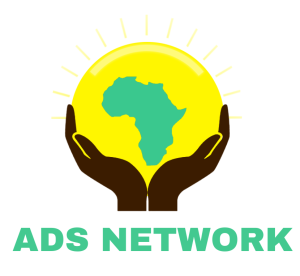
Playground and Daycare Center for Disabled Children In Africa
Poor children, young people and adults living with disabilities in Africa do not receive equal educational opportunities. There are very limited special needs school, which comes at a very expensive cost. According to a 2011 world report on disability, over 90% of African disabled children under the age of 14 are illiterates.
SOLUTION: Our goal is to create daycare Centers across all countries in Africa. These will be our Early childhood Development Centers which will be registered with the respective Department of Social Development of the African country or its equivalent Ministry. Our Centers will act as professionally managed Havens for disabled children, with full-time care staff and educators who will attend to their care and provide them with formal education.

Financial Aid Packages To Disabled People in Poor African Communities
PROBLEM: About 1 in 3 people living in Africa live below the poverty line, and they make up almost 70% of the world’s poorest people. The link between disability and poverty has been thought to be a cycle; poverty increases the risk of disability through factors such as lack of access to healthcare, malnutrition, and poor living conditions. In turn, being disabled in Africa can lead to exclusion from work, restricted access to formal education, as well as high healthcare and other expenses, which can cause or exacerbate poverty.
SOLUTION: Our goal is to financially support disabled people living in Africa and their families. We will put monthly relief and healthcare packages in place which will better their living conditions and also help them access high-quality healthcare without having to worry about the high costs.

Advocate For Policy Reforms and Implementation That will Promote Equality and Inclusion In Work and Social Environment
PROBLEM: Governments in Africa have done little to nothing on issues that concern the disabled community in the continent. Governments in Africa rarely ever consider disabled people when policies and infrastructures are being set up for the general public; for example, public places like train stations are not wheelchair accessible. The Implementation of Article 32 of the International Convention on the rights of persons with disabilities has not been enforced in many African countries.
SOLUTION: One of the key factors for implementation is the lack of financial support available to implement the changes required for the inclusion of people with disability through development projects. We plan to fund community projects which will promote equality and inclusion of people living with disability in society. We will also exhaust all available legal channels in our bid to advocate for policy changes and reforms in the government legislature.

Campaign To Eradicate Stigma Against The Disabled Community In Africa
PROBLEM: One of the biggest challenges we face in Africa regarding vulnerable adults is the associated stigma and discrimination against those living with a learning or physical disability or mental health issue. Sadly, the attitudes of some able-bodied Africans within the communities and society in general have and continue to be a fundamental barrier to enabling people with disabilities to be seen as valued and respected members of society. People with any form of disability deserve to be cared for and supported to live the life that they dream of.
SOLUTION: One of our major goals is to change the thought process of millions of Africans both disabled and not disabled. We will accomplish this by organizing regular campaigns, seminars, and media programs to sensitize the public about the ability that lies in disability and debunk myths attributed to disability.

